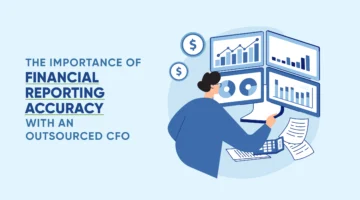Outsourcing Accounting for Non-Profit Organizations
Outsourcing accounting has become an increasingly popular solution for non-profit organizations seeking to manage their financial responsibilities efficiently and effectively. By delegating financial tasks to external experts, non-profits can focus more on their core missions rather than the intricacies of accounting. This approach is particularly beneficial for organizations operating under tight budget constraints or those needing more resources to maintain a full-time accounting department. Outsourcing accounting can offer not just a reduction in costs but also access to a level of expertise that might not otherwise be available internally.
Benefits of Outsourcing Accounting
Outsourcing accounting offers several key advantages:
- Cost Savings: By outsourcing, non-profits can reduce the need for in-house accounting staff, thus saving on salaries, benefits, and training costs. In turn, these resources can be used for project-critical activities.
- Access to Specialized Expertise: Non-profits benefit from the high level of expertise that professional accounting firms offer. These firms stay abreast of the latest practices and regulatory changes, ensuring that knowledgeable professionals handle financial operations.
- Improved Efficiency: With experts handling the financial details, accounting processes become more streamlined and efficient. This leads to faster turnaround times for financial reporting and more accurate financial documents.
- Enhanced Compliance: Professional accountants know the latest financial regulations and reporting standards. Their expertise helps ensure that non-profits comply with these requirements, minimizing the risk of errors and potential financial penalties.
- Increased Financial Accuracy: Outsourcing accounting helps maintain more accurate and up-to-date financial records. Accurate records are crucial for internal decision-making and maintaining the trust of donors and stakeholders.
Identifying the Need for Outsourcing
For non-profit organizations, recognizing the right moment to outsource accounting functions is crucial for maintaining financial health and compliance. Here are key factors that might indicate the need for outsourcing:
- Rapid Growth: When a non-profit grows quickly, its internal resources can be stretched thin, making it challenging to manage increasingly complex financial tasks. Outsourcing accounting can provide the necessary bandwidth and expertise to handle growth efficiently.
- Difficulty in Maintaining Records: If an organization consistently struggles with keeping financial records up-to-date and accurate, it’s a sign that the existing processes need to be revised. Professional accounting services can ensure that financial records are systematically organized and maintained.
- Preparation for Audit: Audits require thorough documentation and precise financial records. If preparing for an audit seems daunting, outsourcing accounting can help ensure that all financial dealings are accurately recorded and compliant with applicable standards, making the audit process smoother and less stressful.
Choosing the Right Accounting Firm
Regarding outsourcing accounting, selecting the right firm is critical for non-profit organizations. Here are several key factors to consider:
- Expertise in Non-Profit Sector: The firm should have a solid track record of working with non-profit organizations. This ensures they understand non-profits’ specific challenges and regulatory environments, such as funding structures, donor reporting, and budget constraints.
- Transparency and Accountability: Choose a firm that values transparency and accountability. The firm should provide clear, comprehensive reporting and open communication channels.
- Scalability: As non-profits grow, their financial needs will evolve. A good accounting firm can scale its services to match your growing needs, whether that involves expanding financial management capabilities or providing additional services.
- Customized Service Offerings: The accounting firm must offer services tailored to your organization’s needs. Customized services ensure that you only pay for what you need, which can be more cost-effective in the long run.
- Integration Capabilities: They must be able to integrate their services with your existing financial systems. This ensures seamless data flow and maintains the integrity of your financial information.
- Strong Communication Protocols: Effective communication is key to any outsourcing relationship. Ensure that your chosen firm has established protocols for regular updates and consultations. Hence, you are always informed and in control of your financial management.
Services Offered by Accounting Firms
Accounting firms provide various essential services tailored to non-profit organizations’ specific needs. Here is a detailed look at each service:
- Bookkeeping: Comprehensive bookkeeping ensures that all financial transactions are meticulously recorded, helping non-profits maintain orderly and accurate records. This service is fundamental for tracking daily financial activities and provides a reliable basis for making strategic decisions.
- Financial Reporting: Detailed financial reports are crucial for non-profits as they assess their financial status, facilitate strategic planning, and ensure transparency. These reports are instrumental in demonstrating accountability to donors, stakeholders, and regulatory bodies, vital for maintaining trust and securing future support.
- Staff Training: For non-profits, comprehensive staff training is essential to ensure that their team is knowledgeable, skilled, and aligned with the organization’s mission and goals. Providing regular training sessions helps staff stay updated on best practices, regulatory requirements, and new technologies. This service enhances the organization’s overall efficiency and effectiveness, fostering a professional and competent workforce capable of achieving the non-profit’s objectives.
- Internal Controls: Robust internal controls are vital for maintaining a non-profit organization’s financial integrity and operational efficiency. Implementing effective internal controls helps to safeguard assets, prevent fraud, and ensure accurate financial reporting. This service provides non-profits with the frameworks and procedures to monitor and manage risks, enhancing accountability and promoting confidence among stakeholders and donors.
Integration with Existing Systems
When non-profit organizations decide to outsource their accounting, integrating these services with their existing financial systems and workflows is crucial for seamless operation. Here are some key points for effective integration:
- Compatibility with Current Systems: Ensure the accounting firm’s software and tools are compatible with your organization’s financial management systems. This compatibility helps in maintaining continuity in financial processes and data integrity.
- Clear Communication Protocols: Establish clear communication channels and protocols between your organization and the accounting firm. This ensures that all financial information is accurately conveyed and that any issues can be promptly addressed.
- Data Sharing Agreements: Set up formal agreements that specify what data will be shared, how it will be protected, and who has access to it. These agreements are essential for protecting sensitive information and ensuring everyone understands their role in handling data.
- Training and Support: Arrange training sessions provided by the accounting firm to familiarize your staff with new systems or changes to existing processes. Ongoing support should also be available to address any issues that arise during the integration phase or regular operations.
Outsourcing accounting is not just a practical financial choice for non-profit organizations; it is a strategic move that can enhance their overall effectiveness and enable them to serve their communities better. By carefully selecting the right firm and integrating their services effectively, non-profits can ensure that their financial management is taken care of, allowing them to focus more on their mission and less on the complexities of accounting.
Need help outsourcing accounting for your non-profit organization? Contact a NOW CFO specialist for more information.



